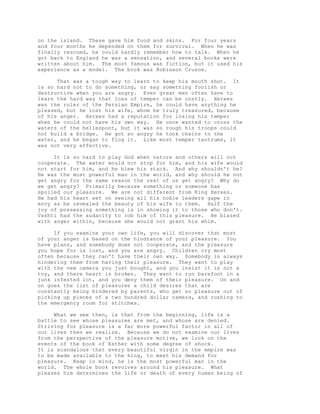The document discusses various paradoxes related to pleasure, perspective, and human nature, using examples from biblical texts and historical figures. It emphasizes that conflicting viewpoints can coexist, asserting that both pleasure and pain can be experienced simultaneously, much like seeing a stick both bent and straight in water. Ultimately, it argues for a balanced understanding of pleasure, recognizing its potential for both good and evil while urging sensitivity to diverse perspectives.







































































